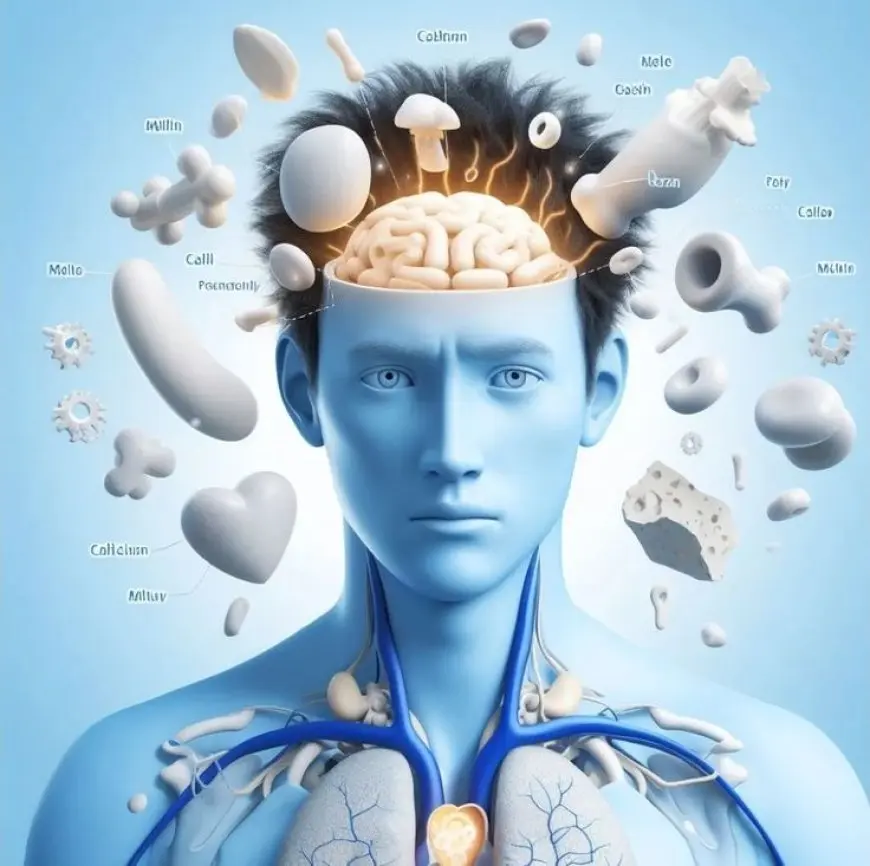The Role of Calcium and Bone Health
The Role of Calcium and Bone Health

Calcium plays a crucial role in maintaining bone health and preventing disorders such as osteoporosis. It is the most abundant mineral in the human body, with around 99% of it stored in the bones and teeth. Ensuring an adequate intake of calcium is essential for optimal bone development, strength, and maintenance throughout life.
Calcium's Role in Bone Health
Bones are constantly being broken down and rebuilt in a process called bone remodeling. Calcium helps to build and maintain the structure of bones, especially during growth periods, such as childhood, adolescence, and early adulthood. After the age of 30, the process of bone breakdown may exceed the rebuilding process, making it crucial to consume enough calcium to prevent bone loss. Adequate calcium intake during the earlier years can help maintain bone density, reducing the risk of fractures and other bone-related conditions in later life.
Calcium and Osteoporosis Prevention
Osteoporosis is a condition where bones become weak and fragile due to a loss of bone density, often as a result of inadequate calcium. This can increase the risk of fractures, especially in postmenopausal women and older adults. Regular calcium intake, along with vitamin D, which aids in calcium absorption, can help prevent osteoporosis and support bone health in those at risk.
Sources of Calcium
Calcium is found in a variety of foods, including dairy products such as milk, cheese, and yogurt. For those who are lactose intolerant or follow a vegan diet, calcium-rich alternatives include fortified plant-based milks (such as almond, soy, and oat milk), leafy greens like kale and bok choy, tofu, almonds, and fortified cereals. Consuming a balanced diet that includes these foods can ensure you get the calcium your body needs to support healthy bones.
The Importance of Vitamin D
While calcium is essential for bone health, it works hand in hand with vitamin D. Vitamin D helps the body absorb calcium more effectively and is crucial for bone growth and remodeling. Sunlight is a natural source of vitamin D, and it can also be obtained from foods like fatty fish, fortified dairy products, and supplements.
Recommended Daily Intake of Calcium
The recommended daily intake (RDI) of calcium varies by age and gender. For most adults, the RDI is around 1,000 mg per day, but women over 50 and men over 70 may need up to 1,200 mg per day. It's important to get calcium from food sources as much as possible, but supplements can be an option if dietary intake is insufficient.
Factors Affecting Calcium Absorption
Several factors can affect how well the body absorbs calcium. For example, high levels of caffeine and sodium can lead to increased calcium loss through urine. Additionally, a deficiency in magnesium or vitamin D can also impair calcium absorption. Maintaining a balanced diet with sufficient magnesium, vitamin D, and low salt intake can enhance calcium absorption.
Incorporating enough calcium into your diet is key to maintaining strong bones and overall health. Beyond just calcium, a healthy lifestyle with regular exercise, particularly weight-bearing activities like walking or strength training, plays a critical role in bone strength. Together, these practices help







